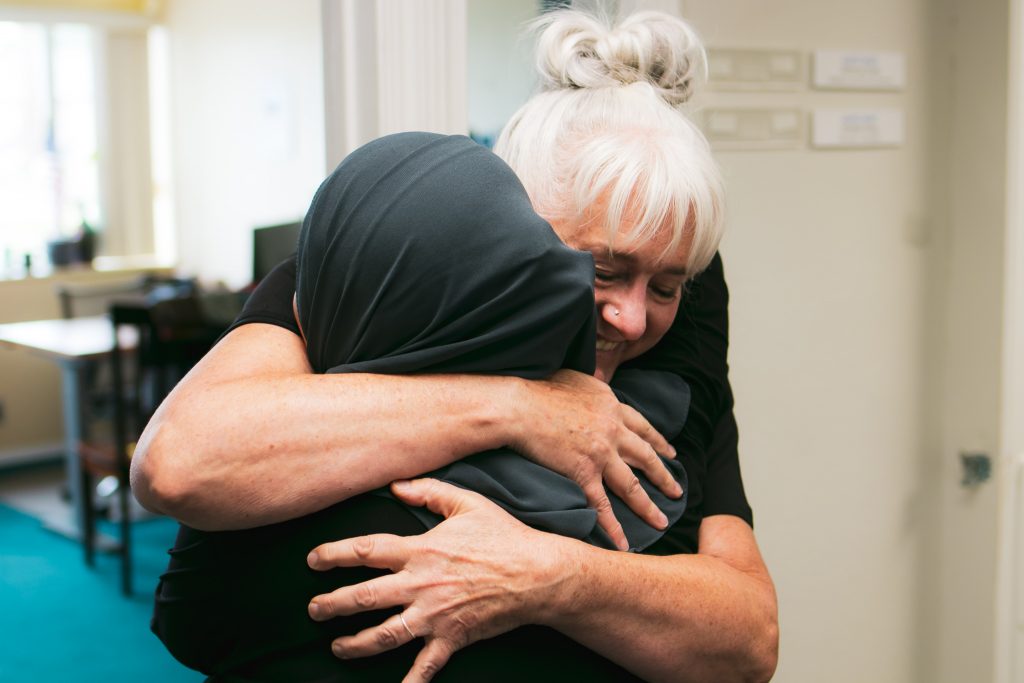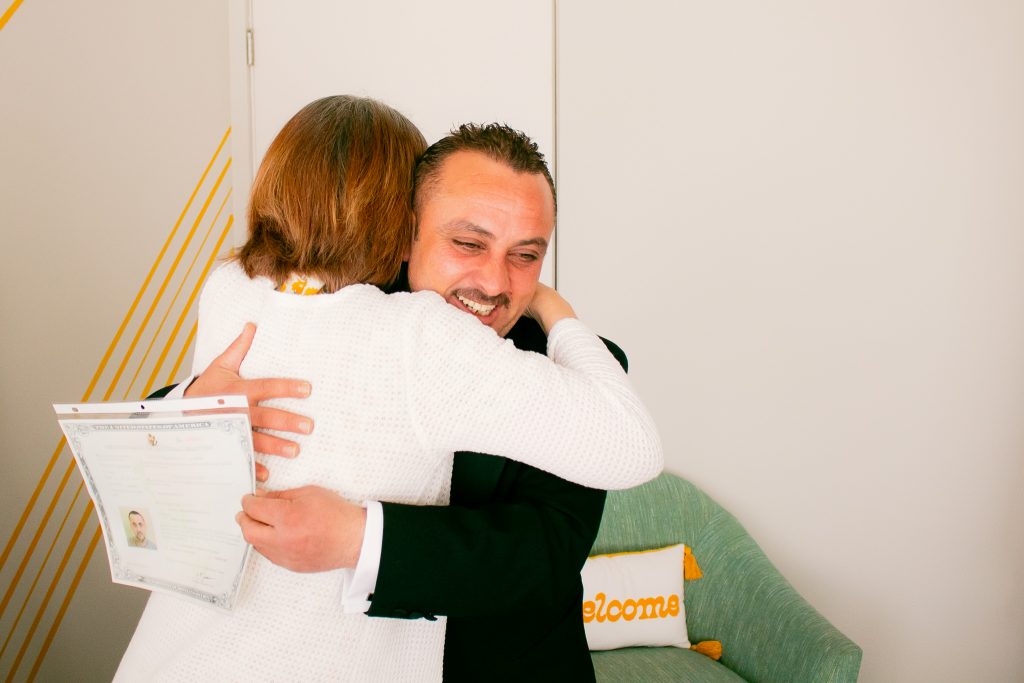Balinda. Anzhella. Rezvan. Ibadallah. Aziz. Ivan. Massuda. Elena. Haitham. Ivan. Abdul. Andrey. Morella. Halima. Viktorya. Just saying the names of a few of the people and new neighbors I have met in my first week of work at World Relief Spokane makes me smile. They come from the Ukraine, Congo, Afghanistan, Russia — places I have never been and may never have the opportunity to visit. Still, right here in Spokane, Washington, I have the opportunity to meet them, to listen to them speak in beautifully accented English or to catch snippets of their conversations in other languages. At lunch, I am offered poppy seed cookies (a Ukrainian favorite) or naan (middle eastern flatbread). My world – my senses, my understanding, my perspective – is about to undergo a radical transformation. I can hardly wait.
I hope you will join me as together we meet people from all over the world and hear their stories.
Last Monday, I arrived at 1522 N Washington as the Development Director for World Relief Spokane. In some ways, I was not the most likely candidate for the job. Yes, my career has been in marketing and fundraising for non-profits, but immigration and refugees are new subjects for me. I have barely been over the borders into Canada and Mexico and no further. I speak one language, and up until now, frankly, my world has been pretty white and pretty ethnocentric. Although not entirely. For 14.5 years, I worked for Union Gospel Mission in Spokane, telling the stories of people experiencing homelessness, many of whom had experienced horrific childhood trauma. Their stories expanded my understanding of what it means to love my neighbor, to see beyond the surface of a person’s life, to extend compassion in a meaningful way, to live for reasons beyond my own success and comfort. Now, I’m preparing to further grow my understanding, to hear and tell stories that will encompass a different kind of homelessness, another form of trauma, and rejection on a national scale.

I have to start with the basics:
Who is a refugee? A refugee is someone who has had to flee his or her home country due to violence or persecution. By definition, a refugee has been invited to come to the United States and comes here legally.*
In 2021, 89.3 million people were forcibly displaced worldwide as a result of persecution, conflict, violence, human rights violations or events seriously disturbing public order.
- 53.2 million of these people are internally displaced within their own countries; 27.1 million are refugees.
- Roughly 36.5 million (41%) of the 89.3 million forcibly displaced people are children below 18 years of age. (The UN Refugee Agency)
This week, I spoke with a woman whose family fled Ukraine twenty-two years ago when she was six years old due to religious persecution. Because they were Christians, the children were not allowed to go to school. I spoke with a medical doctor whose wife worked for the US Embassy in Afghanistan, and when Kabul fell, they had two hours’ notice to evacuate. I spoke with a woman who had been a refugee her whole life before coming to the United States. They are all our neighbors.
How many refugees come to the US? A total of 11,411 refugees (18 percent of Biden’s announced target of 62,500) were resettled in the United States in fiscal year 2021. (Center for Immigration Studies)
Which countries are accepting the most refugees? 38% of the total number of refugees are hosted in just five countries: Turkey (3.8 million), Colombia (1.8 million), Uganda (1.5 million), Pakistan (1.5 million) and Germany (1.3 million). Poor and middle-income countries are shouldering more than their share of the burden.
Who is an immigrant?
An immigrant is anyone who takes up permanent residence in a foreign country. All refugees are immigrants, but not all immigrants are refugees. We will look at other categories of immigrants in future blog posts.
First and foremost, refugees and immigrants are human beings created in the image of God. They are our brothers and sisters.

“Do not oppress a foreigner; you yourselves know how it feels to be foreigners because you were foreigners in Egypt.” Exodus 23:9
“Immigrants today, whatever their manner of entry, come primarily for the same reasons that immigrants have always come to our country. Though immigration policies have changed quite drastically over the last two centuries, immigrants themselves are still pushed out of their countries of origin by poverty, war, and persecution, and are still drawn to the United States by promises of jobs and economic advancement, freedom and family reunification. These push-and-pull factors explain most, if not all, of immigration to the United States from the time of the first settlers to today.” (Welcoming the Stranger, p. 45)
For most of us, the idea of being forced from our homes or prevented from going to school or church or the market, the fear of being kidnapped or killed, or receiving notice that we must be evacuated within hours are so far removed as to seem unreal, but for millions of people those scenarios are very real.
We cannot fix the global problem, but we can make our city a welcoming place for the 650 new neighbors we expect to arrive next year. And to those 650 people, it can make all the difference in the world.
Learn more about World Relief and the work we do by clicking the link here.
*Legal definition of “refugee” from the UN Refugee Agency: someone who “owing to well-founded fear of being persecuted for reasons of race, religion, nationality, membership of a particular social group or political opinion, is outside the country of his nationality and is unable or, owing to such fear, is unwilling to avail himself of the protection of that country; or who, not having a nationality and being outside the country of his former habitual residence, is unable or, owing to such fear, is unwilling to return to it.

